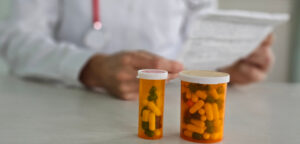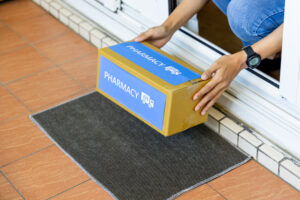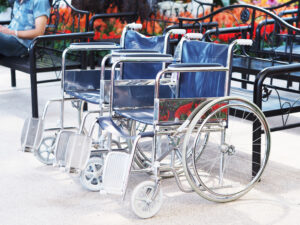The fluorescent lights buzzed overhead as I stood in line, clutching my new prescription with the familiar mixture of anxiety and confusion that always accompanied these visits.
Two medications had just been added to my already complex regimen following my heart procedure, and questions swirled through my mind.
Would these new pills interact with my existing ones?
Could I still have my morning grapefruit?
Why did my cardiologist and primary care doctor seem to give conflicting advice?
When I finally reached the counter at my local Hackensack pharmacy, I expected the usual brief interaction – hand over prescription, wait, pay, leave.

We Can Help With More Than Prescriptions
Instead, Joe, the pharmacist I’d seen dozens of times but barely spoken with, noticed my furrowed brow and asked if I had a moment to talk. That fifteen-minute conversation in the consultation room changed my entire understanding of what a pharmacist could be in my healthcare journey.
The Healthcare Navigator We Rarely Recognize
In a state with some of the country’s most complex healthcare networks, New Jersey pharmacists have quietly evolved into something far more significant than medication dispensers. They’ve become healthcare navigators, helping patients make sense of fragmented care systems that often leave us bewildered.
The Medication Detective Work You Never See
“I consider myself a medication detective,” explains Diana Russo, who has owned her independent pharmacy in Montville for nearly twenty years. “When a patient brings in prescriptions from multiple specialists, I’m often the only healthcare provider with the complete picture.”
This detective work is far more complex than simply checking for direct drug interactions. When Tom DeMarco, a Toms River pharmacist, reviews a patient’s medication profile, he’s analyzing timing, absorption issues, duplicate therapies, and subtle contraindications that might be missed in brief doctor visits.
“Last week, I had a patient taking two medications that individually were fine with her blood pressure pills, but together could cause dangerous potassium elevations,” DeMarco notes. “Neither doctor knew about the other’s prescription. These catches happen daily, not occasionally.”
The Translation Between Medical Worlds
New Jersey’s healthcare landscape is notoriously siloed – specialists rarely communicate effectively with primary care providers, discharge instructions get lost in transitions, and patients are left trying to reconcile conflicting medical advice.
In this fragmented system, pharmacists often serve as translators. Princeton pharmacist Sophia Lin describes this role: “A patient might see their cardiologist in the morning, who increases one medication, then visit their nephrologist in the afternoon, who decreases another without knowing about the morning’s change. I help them make sense of these sometimes contradictory instructions.”
This translation extends beyond medication management. When medical jargon leaves patients confused about their treatment plans, local pharmacists provide plain-language explanations that actually enable adherence.
The Community Health Partner Next Door
New Jersey’s distinct geography – dense urban centers, close-knit suburbs, and scattered rural communities – creates unique healthcare access challenges. Local pharmacists have adapted to fill these gaps in remarkably creative ways.
Culturally Connected Care in NJ’s Diverse Communities
In Elizabeth’s primarily Spanish-speaking neighborhoods, pharmacist Miguel Vega has transformed his pharmacy into a true community health hub. Beyond offering consultations in Spanish, he provides culturally appropriate nutrition guidance for patients managing diabetes and hypertension – conditions disproportionately affecting Latino communities.
“Many of my patients resist changing traditional recipes that might worsen their health conditions,” Vega explains. “So we work together to modify family dishes rather than eliminate them. This approach respects cultural traditions while improving health outcomes.”
In Edison’s South Asian communities, local pharmacists understand the Ayurvedic remedies many residents use alongside conventional medicines – knowledge that helps prevent harmful interactions that might never be discussed with physicians.
The Accessible Early Warning System
The average New Jerseyan sees their pharmacist ten times more frequently than their primary care provider. This regular contact creates opportunities for early intervention that the traditional healthcare system often misses.
“I notice subtle changes in my regular patients that might indicate developing health issues,” explains Camden pharmacist Denise Johnston. “When someone who’s normally engaged seems confused about their medications, it might signal a cognitive change worth investigating. When someone’s gait changes, it could indicate a medication side effect or new neurological issue.”
These observations – possible only through consistent interaction – often catch health issues before they become emergencies.
Health Education in Five-Minute Conversations
Perhaps the most transformative role of local pharmacists happens in brief, seemingly routine interactions that cumulatively build health literacy over time.
Micro-Learning Moments That Transform Health
Maplewood pharmacist Robert Williams has developed what he calls “prescription plus” – adding one key piece of health information to every patient interaction.
“Most patients don’t have time for lengthy counseling, but they can absorb small pieces of relevant health information,” Williams explains. “So when dispensing blood pressure medication, I might briefly explain how sodium affects readings. When providing diabetes supplies, I might demonstrate proper foot examination. These micro-education moments build over time.”
This approach creates cumulative health knowledge through dozens of brief interactions rather than overwhelming patients with information all at once.
The next time you visit your local New Jersey pharmacy, consider the healthcare professional behind the counter not just as someone who counts pills, but as an accessible, knowledgeable partner in your health journey – one who may understand the complete picture of your medications better than any other provider in your healthcare team.




